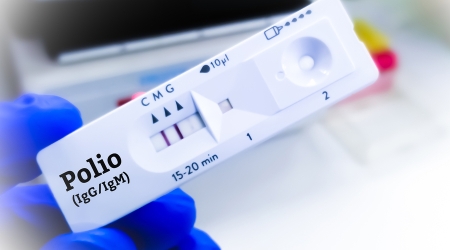
Polio Vaccine Eligibility
All New Yorkers who are unvaccinated, including children by 2 months of age, those who are pregnant, and people who have not completed their polio vaccine series previously, should get immunized right away.
Polio Booster Eligibility
If you have already been fully vaccinated, you probably do not need a booster at this time.
The following adults, who have previously completed their polio vaccine series, should receive ONE lifetime booster dose of IPV (Polio booster):
- Individuals who will or might have close contact with a person known or suspected to be infected with poliovirus or such person's household members or other close contacts.
- Healthcare providers working in areas where poliovirus has been detected (Rockland County, Orange County, Sullivan County, New York City, or Nassau County) who might handle specimens that might contain polioviruses or who treat patients who might have polio (e.g., urgent care, emergency department, neurology, virology laboratory workers).
- Individuals with occupational exposure to wastewater can consider a booster.
General Information
Polio (poliomyelitis) is a highly contagious viral infection caused by a type of enterovirus. It is characterized by paralysis or weakness in arms, legs or both. There have been no cases of wild type polio acquired in the U.S. since 1979.
People who are not vaccinated can get polio at any age.
People who have polio can spread it to others through their feces on hands or objects. It is important to wash your hands frequently, especially after using the bathroom or changing diapers. It is also possible to spread the virus through saliva and respiratory droplets.
A person can spread the virus before and up to two weeks after they first have symptoms. However, patients can spread disease as long as the virus is in their feces or saliva. It can spread from people even if they do not have any symptoms.
For more information and resources please visit: https://www1.nyc.gov/site/doh/health/health-topics/poliomyelitis.page